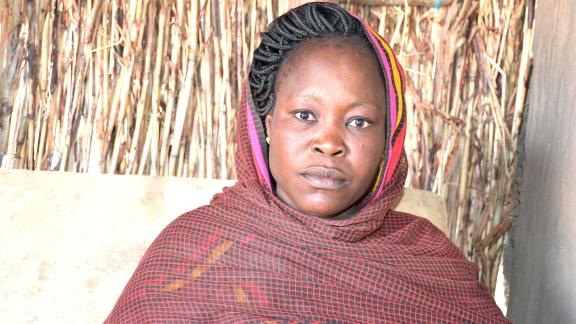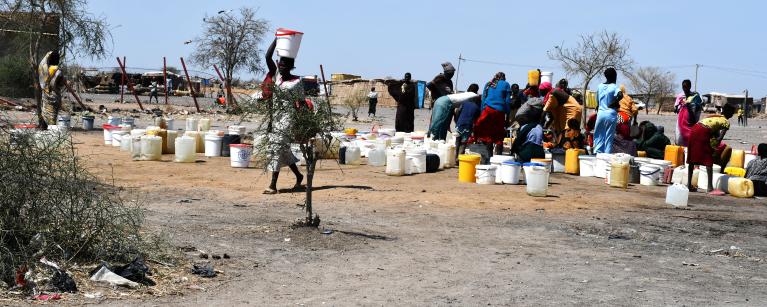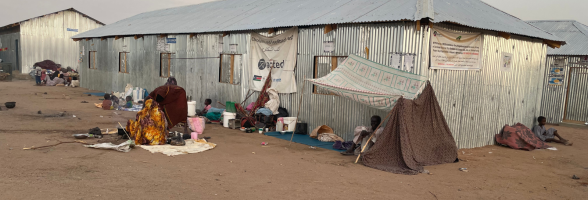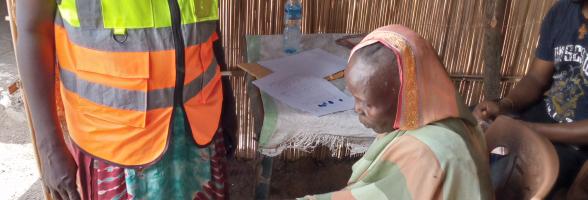Getting clean drinking water in some parts of South Sudan is a struggle that requires sacrifice that stretch beyond convenience. Renk, a town bordering Sudan and South Sudan is among the worst affected areas due lack of clean safe water. This is made more challenging as it now hosts over 20,000 returnees and refugees fleeing the Sudan conflict which puts additional strain on an already overburdened water infrastructure in Renk and South Sudan in general.
Nyabech Ding a returnee mother of four living in Ziro Site, one of the informal transit centers in Renk shares a glimpse of the challenges related to water in her new makeshift home.
“During the dry season, I spend at least three to five hours to get water from the only water point in the area”, she mentioned.

The absence of adequate infrastructure further compounds the challenge leaving many families like Nyabech to walk long distance in search of this important and precious commodity.
“Water is a very big challenge to us here especially if you do not have money to buy from those selling water on Donkey-drawn carts. I used to buy a jerrycan of water at 4000SSP ($3) which is very high for my family and other family members living here,” she explained.
For 39-year-old Nyabech, water scarcity is a burden for her and her four children, in addition she needs water for bathing, washing and other household chores.
“I wake up at 5.00 am in the morning and walk to the water point. When I get there, I have to wait in the queue for hours and sometimes despite making an effort to go early, the water may not available in the water point. This would force me and many others to wait for more hours until the water-truck brings water.” explains Nyabech.
She adds that toppled with the challenges, the water ration varies in different times depending on availability of water in the storage tanks.
The challenge further escalates during the rainy season when the floods render the area in accessible cutting them off from water sources. "We're forced to travel to the river," Nyabech shares.
There is high health risk due to lack of access to water treatment, threatening the health of many children who now have to depend on the water from the river. "Clean water shouldn't be a luxury," Nyabech says her voice carrying the weight of countless mothers in Renk. "We need help."
Oxfam is providing vital support to refugees and returnees in transit camps in Renk reaching over 90,000 people with lifesaving clean water, cash and sanitation, but the need remains immense with funding dwindling and more refugees fleeing the conflict arriving to South Sudan.
To date, the conflict in Sudan has displaced at least two million people, triggering one of the world’s largest humanitarian crises. Neighboring countries – South Sudan, Chad, Central African Republic, Ethiopia, Egypt, and Libya – are feeling the impact whether through strained resources, economic disruptions or risk of the conflict spilling over. This is in addition to approximately two-thirds of the population urgently needing humanitarian assistance, including 35,000 people in IPC 5 in South Sudan.
As the sun sets for Nyabech and hundreds of thousands other refugee families in Renk, their hopes remain steadfast, hoping that tomorrow will be better than today.


